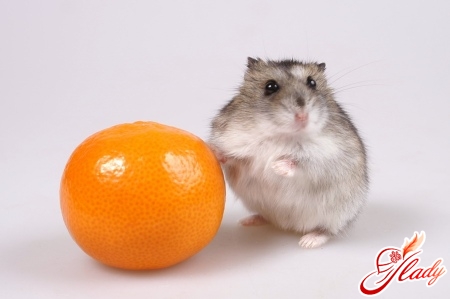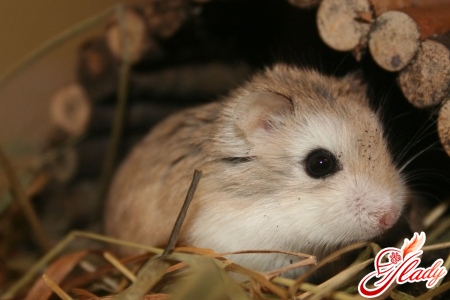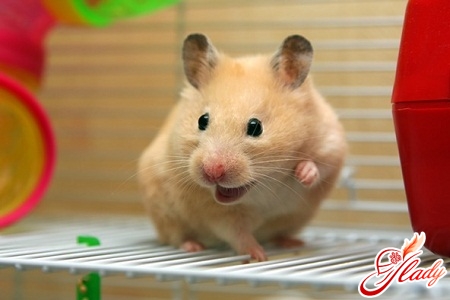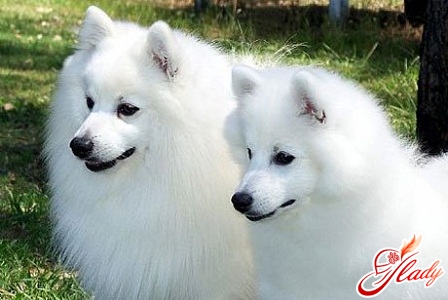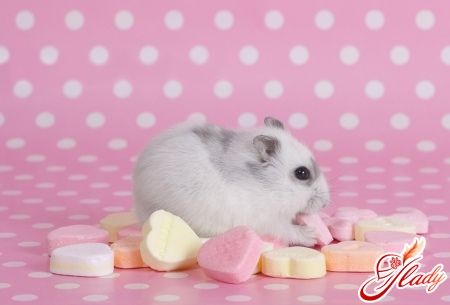 Hamsters do not lose their popularitypets. It is very tempting to have a funny and smart little animal at home, which is so small that it fits in the palm of your hand, and besides, it is very easy to take care of such pets. By the way, domestic hamsters are far from uniform. Here, too, there are their own breeds, representatives of which can be fluffy or smooth-haired, one-colored or variegated, large or small. The smallest domestic hamsters are Djungarian or, as they are also called, Djungarians. Many believe that there is no need to take care of such babies at all. It is enough to feed them and clean the cage from time to time. However, hamsters do not live long with such bad owners. Animals begin to get sick, become lethargic and stop delighting people with their funny antics and businesslike behavior. And for the hamsters themselves, such a life is not a joy. But competent and completely unburdensome care of the Djungarian will guarantee a comfortable existence of this baby next to a person. So how do you properly care for small Djungarian hamsters?
Hamsters do not lose their popularitypets. It is very tempting to have a funny and smart little animal at home, which is so small that it fits in the palm of your hand, and besides, it is very easy to take care of such pets. By the way, domestic hamsters are far from uniform. Here, too, there are their own breeds, representatives of which can be fluffy or smooth-haired, one-colored or variegated, large or small. The smallest domestic hamsters are Djungarian or, as they are also called, Djungarians. Many believe that there is no need to take care of such babies at all. It is enough to feed them and clean the cage from time to time. However, hamsters do not live long with such bad owners. Animals begin to get sick, become lethargic and stop delighting people with their funny antics and businesslike behavior. And for the hamsters themselves, such a life is not a joy. But competent and completely unburdensome care of the Djungarian will guarantee a comfortable existence of this baby next to a person. So how do you properly care for small Djungarian hamsters?
How many jungarikov to get?
Many of the newly-minted owners of the Dzungarianhamsters are firmly convinced that these little animals simply need company. Therefore, they buy a couple of hamsters at once, a cozy cage for them and all the necessary devices: drinkers, feeders, houses and other devices. However, not everyone knows that Djungarian hamsters do not need companions at all. Moreover, each Djungarian hamster should live in its own separate cage! That's how individualistic they are. However, this is not a whim at all, but a feature of these animals conditioned by nature. In natural conditions, they live separately, so loneliness in captivity does not make their life boring. On the contrary, in a spacious cage without neighbors, Djungarian hamsters feel free and comfortable. But the forced need to share territory with other hamsters makes Djungarian hamsters aggressive and restless. In most cases, keeping several animals in one cage leads to truly tragic consequences. Hamsters begin to share their living space, arrange fights that end not only in injuries, but also in the death of animals. However, there are examples of quite peaceful coexistence of Djungarian hamsters. But you will still have to make the final choice. And if you are determined to buy more than one hamster, then prepare a separate cage for each pet. By the way, the cage for these babies should also be chosen taking into account their lifestyle.
Which cell to choose?
Caring for a Djungarian hamster begins withpurchase of a suitable cage and accessories for it. For a hamster to feel comfortable, it needs a fairly spacious cage with dimensions of 60x30x30 centimeters. The fact is that Djungarian hamsters are very active and spend a lot of time running and warming up. Note that the bars in the hamster cage should be horizontal. Then the hamster will be able not only to run on the floor of the cage, but also to climb the bars, like a gymnastic wall. In addition to a spacious cage, you need to buy a special drinker, a food bowl, a house and a rotating wheel. This is the standard minimum required by any domestic hamster. Active Djungarian hamsters will not be hurt by additional gymnastic equipment: ladders, tunnels, sections. In addition, it would be good to equip the cage with a bath and a stone for grinding teeth, which can be chalk or mineral. All these accessories can be purchased at a pet store, and some of them can be made by hand. An important element of the Djungarian hamster's home is the filler for the cage. Everything is simple here - any filler except cotton wool will do for Djungarians. Cotton wool is simply dangerous for these animals, since its fibers can wrap around tiny paws and bodies, disrupting blood circulation and causing swelling and necrosis. As for other types of filler, the hamster will feel comfortable even in a cage with cat litter. And of the special fillers, cellulose, wood and corn are especially common. In addition, you can use ordinary sawdust, scraps of toilet paper or paper napkins as filler. By the way, the hamsters themselves are happy to use the latter materials to build a nest.
Hygiene of the home
Caring for a hamster's home comes down to timelycleaning the cage and replacing the filler. A pleasant feature for people of the Djungarian hamster is the almost complete absence of a specific smell, so keeping these animals in the house is almost problem-free. Therefore, it is enough to clean the entire cage, where only one hamster lives, once a month. But this is only if the animal is accustomed to the toilet and has allocated a secluded corner in its home for this purpose. If your pet is not so neat, has not thought of equipping a toilet for itself and leaves traces of its life activity throughout the cage, then you will have to clean it more often. And the most reasonable solution would be weekly cleaning. For the cage itself, it is necessary to choose the right location. So, for example, you cannot put the Djungarian hamster's home near the central heating battery, next to the TV, computer, refrigerator. Keeping the hamster in a cage on the windowsill or on a cabinet near the window is also not the best option - sunlight is harmful for Djungarian hamsters. In any case, try to shade the cage from the sun's rays.
Hygiene of the Dzungarian
It is believed that caring for Djungarian hamsters is verysimple. It is. But care for these babies should be very delicate. In fact, there is no need for any special hygiene procedures. It will be enough to have a sand bath in the cage so that the animal can take care of its hygiene on its own. You only need to periodically examine the pet to detect possible injuries or diseases. If you want to properly care for a miniature and naturally active Djungarian hamster, you must provide the hamster with conditions for maintaining physical fitness. This is the already mentioned wheel, tunnels and ladders. It is advisable to purchase a wheel with a solid surface that does not injure the hamster's paws. As for the questions about bathing, the answer is unambiguous - no, you cannot bathe Djungarian hamsters. This is dangerous not only for the health of such miniature creatures, but even for their lives. If the animal is very dirty, then clean the fur with a damp sponge.
Feeding jungariki
It is clear that caring for any pet is notcomes down to hygiene procedures only. So your hamster should not only be clean and healthy, but also fed on time and correctly. Note that feeding these babies does not complicate their care. Djungarian hamsters are unpretentious in food and are almost omnivorous. They can be given fruits and vegetables, greens and cereals, chicken meat, cottage cheese and egg white. However, the basis of the diet should be food for rodents with a dosage of 10-15 grams per day. List of additional products that the Djungarian hamster will not refuse:
- walnuts, hazelnuts, peanuts,
- sunflower seeds, melons and pumpkins;
- wheat, buckwheat, oatmeal;
- apples, plums, pears;
- carrots, radishes, tomatoes;
- parsley, green salad, dandelion leaves.
However, your hamster should also get enough protein, so give him one of the following foods once a week:
- flour worms (sold in pet stores),
- boiled chicken meat;
- hard-boiled chicken egg;
- low-fat cottage cheese and yogurt;
- lean boiled fish.
In short, proper feeding, maintenance and careguarantee your pet a comfortable life. Wait until the hamster gets used to the new place, let it get used to its home and to you. Soon the baby will start taking treats from your hand, and then will happily come into your hands. And that means there is contact! Do not forget that pets need not only proper care, but also love. Even a miniature Djungarian hamster needs love and care. Remember that we are responsible for those we have tamed. We recommend reading:




